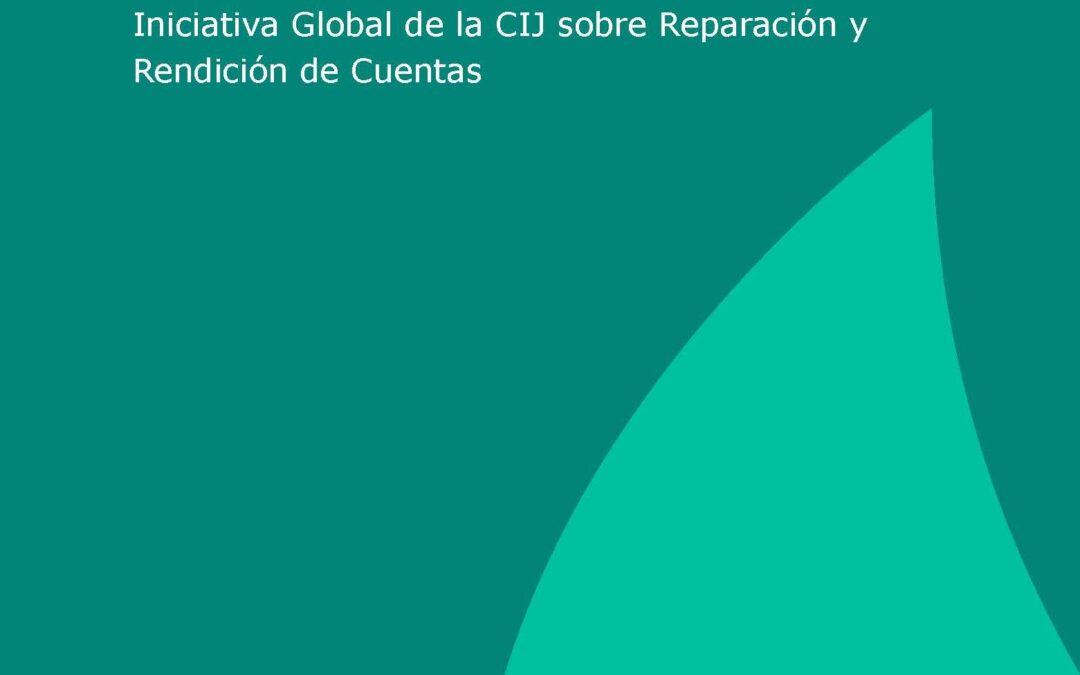
Aug 30, 2020 | News, Publications, Reports, Thematic reports
The ICJ marked the International Day of the Victims of Enforced Disappearances today by releasing a baseline study (in Spanish) which identifies key obstacles to accountability for serious human right violations in Colombia.
“The report finds that although Colombia has a comprehensive legal framework aimed at providing accountability for serious human rights violations, victims still face many challenges in obtaining access to justice,” said Kingsley Abbott, Coordinator of the ICJ’s Global Accountability Initiative.
“A robust domestic legal framework is important, but without effective Government implementation at every level full accountability for these violations will remain out of reach,” added Abbott.
Among other challenges, some victims still encounter difficulties in participating in criminal proceedings or obtaining information about investigations and prosecutions of those alleged to be responsible for violations.
The study recommends steps Colombia should take to improve the implementation of the domestic legal framework, including:
- raising the awareness of civil servants, including judicial employees, of victims’ rights and the appropriate legal mechanisms employed to search for “disappeared” persons;
- improving coordination between the State’s institutions, including the Search Unit for Persons Presumed Disappeared in the context and by Reason of the Armed conflict, the Special Jurisdiction for Peace, and the Office of the Attorney General; and
- ensuring that the investigation and prosecution of enforced disappearances and extrajudicial killings take place within the civilian rather than the military justice system.
The study also stresses the importance of Colombia recognizing the competence of the UN Committee on Enforced Disappearances (CED) to receive and consider individual communications. Considering the high levels of impunity, the recognition has been requested by Colombian civil society organizations and victims to improve the protection and guarantee of rights of victims of enforced disappearances.
The baseline study has been produced as part of the ICJ’s regional project addressing justice for extrajudicial killings and enforced disappearances in Colombia, Guatemala and Peru, sponsored by the European Union.
The baseline study is available in Spanish.
Background
The ICJ has long been monitoring laws, policies and practices concerning the investigation and prosecution of serious human rights violations and abuses in Colombia, including enforced disappearances and extrajudicial killings, as part of its efforts to promote accountability, justice and the rule of law around the world.
Enforced disappearances and extrajudicial killings are among the most prevalent human rights violations committed in Colombia, particularly in the context of the ongoing internal armed conflict. In Latin America, Colombia has one of the highest figures of people who have been subject to enforced disappearance or unlawfully killed.
The project is implemented under the ICJ’s Global Accountability Initiative which has also produced baseline studies for Eswatini, Nepal, Myanmar, Venezuela, Cambodia, Tajikistan and Tunisia.
Contacts
Kingsley Abbott, Coordinator of the Global Accountability Initiative, e: kingsley.abbott(a)icj.org
Carolina Villadiego, Legal and Policy Adviser, Latin America, and Regional Coordinator of the Project, e: carolina.villadiego(a)icj.org
Rocío Quintero M, Legal Adviser, Latin America, e: rocio.quintero(a)icj.org
Download
Colombia-GRA-Baseline-Study-Publications-Reports-Thematic-reports-2020-SPA (full report, in Spanish, PDF)
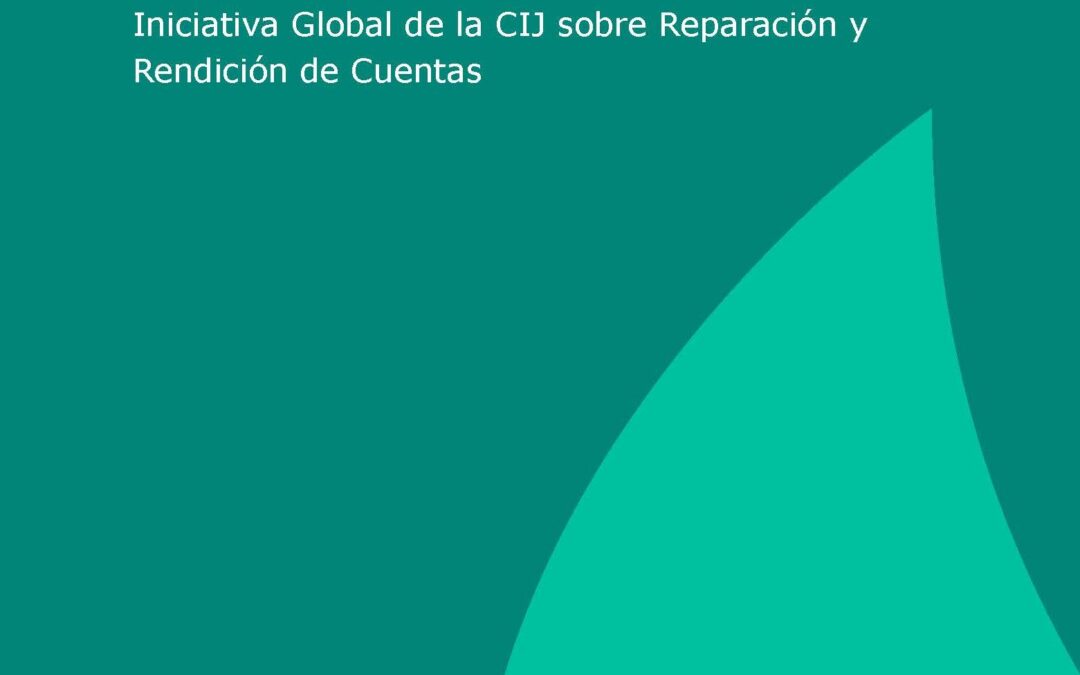
Aug 30, 2020
En conmemoración del día internacional de las víctimas de desapariciones forzadas, la CIJ presenta un estudio de línea base que examina los obstáculos que existen para la investigación y judicialización de los responsables de graves violaciones a los derechos humanos en Colombia.
“El reporte enfatiza que, si bien Colombia tiene un comprensivo marco jurídico para la rendición de cuentas por graves violaciones a los derechos humanos, las víctimas todavía enfrentan serios obstáculos para obtener justicia”, dijo Kingsley Abbott, Coordinador de la Iniciativa Global de Rendición de Cuentas de la CIJ.
Abbott también manifestó que “aunque un marco jurídico es importante, sin una efectiva implementación, no será posible que se garantice la rendición de cuentas de los responsables.
Entre otros obstáculos, se destaca el hecho que algunas víctimas han tenido problemas para participar en los procesos penales o obtener información sobre las investigaciones penales que se están adelantando.
El estudio ofrece recomendaciones para que se mejore la implementación del marco jurídico colombiano. Entre estas recomendaciones están:
- Realizar capacitaciones a los funcionarios públicos, incluidos los funcionarios judiciales, sobre los derechos de las víctimas y los mecanismos legales disponibles para la búsqueda de personas desaparecidas.
- Mejorar la coordinación entre las entidades del Estado que tienen funciones en materia de desaparición forzada.
- Evitar que la investigación y judicialización de los responsables de desapariciones forzadas y ejecuciones extrajudiciales se adelanten ante la justicia penal militar.
En esa misma línea, el estudio resalta la importancia que Colombia le otorgue competencia al Comité contra las Desapariciones Forzadas de las Naciones Unidas para recibir y considerar comunicaciones individuales. Dado los altos niveles de impunidad, el reconocimiento de competencia al Comité ha sido solicitado por organizaciones colombianas de la sociedad civil y víctimas, con el fin de mejorar la protección y garantía de los derechos de las víctimas de desaparición forzada.
Documento anexo a la Línea Base: Instituciones con funciones en materia de desaparición forzada en Colombia.
La elaboración del estudio fue posible gracias al apoyo del Instrumento Europeo para la Democracia y los Derechos Humanos (IEDDH) de la Unión Europea.
Antecedentes
La CIJ, en cumplimiento de su objetivo de promover la rendición de cuentas, la justicia y el estado de derecho en Colombia, ha estado monitoreando continuamente la investigación y el enjuiciamiento de violaciones y abusos graves a los derechos humanos, incluyendo los fenómenos de ejecuciones extrajudiciales y desapariciones forzadas.
Se trata de dos crímenes que se encuentran profundamente arraigados en la historia colombiana, en particular, a su conflicto armado. Adicionalmente, las dimensiones de las ejecuciones extrajudiciales y las desapariciones forzadas en Colombia son una de las más alarmantes del continente.
El estudio de línea base fue elaborado como parte del proyecto “Promoviendo justicia para ejecuciones extrajudiciales y desapariciones forzadas en Colombia, Guatemala y Perú”, que hace parte de la Iniciativa Global de la CIJ sobre Rendición de Cuentas (Global Accountability Initiative). Bajo esta iniciativa, la CIJ ha elaborado otros estudios de línea base en Eswatini, Nepal, Myanmar, Venezuela, Cambodia, Tajikistán y Túnez.
Contactos:
Kingsley Abbott, Coordinador de la iniciativa global de rendición de cuentas de la CIJ. Correo electrónico: kingsley.abbott(a)icj.org
Carolina Villadiego, Asesora Legal, América Latina y coordinadora regional del proyecto. Correo Electrónico: carolina.villadiego(a)icj.org
Rocío Quintero M, Asesora Legal, América Latina. Correo electrónico: rocio.quintero(a)icj.org
Colombia-GRA-Baseline-Study-Publications-Reports-Thematic-reports-2020-SPA
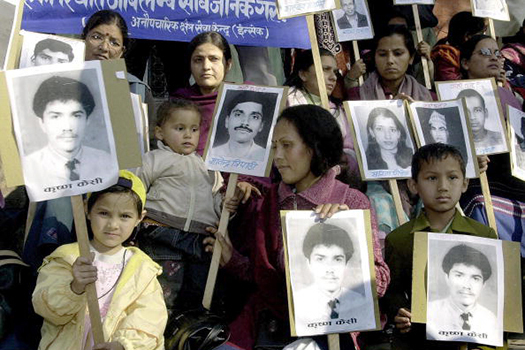
Aug 30, 2020 | Advocacy, News
While commemorating the International Day of the Disappeared 2020, the ICJ and 47 other national and international organizations and groups of victims, in Nepal, call on the responsible authorities to undertake immediate steps towards reinvigoration of the transitional justice (TJ) process, adopting a transparent and consultative process.
On this occasion, the victims’ groups and human rights organizations in Nepal commend the patience and resilience shown by the family members of those subjected to enforced disappearance during the 10-year-long internal armed conflict from 1996-2006. They have worked tirelessly advanced the TJ process (Truth, Justice, Reparation and Institutional Reform) in Nepal for more than a decade through their peaceful struggle, despite many difficult hurdles.
In 2015 the Supreme Court found several sections of the Truth and Reconciliation Commission (TRC) Act, including the one empowering the commissions to offer amnesty and facilitate mediation/reconciliation between victims and perpetrators, including those involved in gross human rights violations, to be unconstitutional and non compliant with Nepal’s international obligations. More recently, on 26 April 2020 the Court rejected the petitions of the Government to review and revise the 2015 decision.
To date, the Government has not initiated any effort to amend the law as per these decisions. Rather, it has been misusing these Commissions in a manner that has prevented victims from accessing remedies through the regular criminal justice system and has made no efforts to strengthen these Commissions to delivery their mandates effectively. Two years back, Nepal recognized enforced disappearance as a distinct crime for the first time when enacting a new Penal Code. While this step is commendable, these legal provisions have not ensured justice for victims, the police typically refuse to investigate cases from the conflict period,arguing that they come under the jurisdiction of the TJ mechanisms.
Despite civil society’s repeated calls to appoint the Commissioners after amending the TRC Act following wider consultations with victims and civil society, the Government recently appointed Commissioners under the same Act that the SC had deemed flawed five years ago. Moreover, the Government has not addressed the repeated calls and concerns regarding the political interference and lack of transparency in the appointment of the Commissioners and the overall TJ process.
Human rights organizations and many victims groups have lost confidence in and stopped supporting to these Commissions.
The undersigned organizations call upon the Government of Nepal:
- To ensure the Commissions provide for, rather than delay and deny, truth and justice to
victims;
- Start fresh consultations to amend its law in compliance international human rights law
and Supreme Court directives, including by removing of amnesty for the perpetrators
provisions;
- Appoint a new set of commissioners under the revised Act that respects victims basic right
to truth and justice;
- Immediately ensure the social, cultural, economic, psychological and legal support
suffered by the victims and families of enforced disappearance as part of victims’ rights
to reparation;
- Revise the Penal Code to bring it in line with international standards. As a minimum, this
should include:
- amending the definition of enforced disappearances to bring it in line with Nepal’s international obligations and the Convention on the Protection of All Persons from Enforced Disappearance
- revising the penalty for enforced disappearance in the Penal Code to make it proportionate to the gravity of the crime
- removal of the statute of limitations for enforced disappearance cases
- Ratify International Convention for the Protection of All Persons from Enforced Disappearances Punishment.
Download
Full joint-statement with detailed information in English and Nepali. (PDF)
Contact
Ian Seiderman: ICJ Legal and Policy Director, e: ian.seiderman(a)icj.org
Mandira Sharma: ICJ Senior Legal Adviser, e: mandira.sharma(a)icj.org
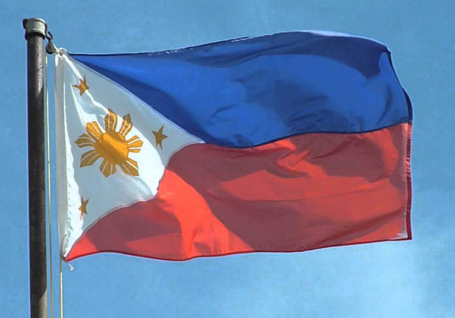
Aug 27, 2020
The ICJ has joined a call by more than 60 organizations urging the UN Human Rights Council to create an independent international investigative mechanism on the human rights situation in the Philippines, at its upcoming session in September.
The call comes in an open letter to all member and observer States at the Council.
The ICJ and other organizations express grave concern over ongoing extrajudicial executions and other serious human rights violations in the context of the “war on drugs” in the Philippines. They note that these abuses continue to be fueled by incitement to violence and discrimination by the highest levels of government, with near-total impunity.
The letter urges delegations to ensure that the United Nations Human Rights Council responds robustly to the recent report on the situation in the Philippines by the UN High Commissioner for Human Rights when it convenes for its upcoming 45th session in September.
Specifically, the organizations call for adoption of a resolution establishing an independent international investigative mechanism on extrajudicial executions and other human rights violations committed in the Philippines since 2016, with a view to contributing to accountability.
Establishing such a mechanism would, the letter notes, be in line with clear calls by the UN High Commissioner for Human Rights, a group of Special Procedures, the Commission on Human Rights of the Philippines, and national and international civil society.
The letter can be downloaded in PDF format here: UN-HRC45-OpenLetter-Philippines-2020
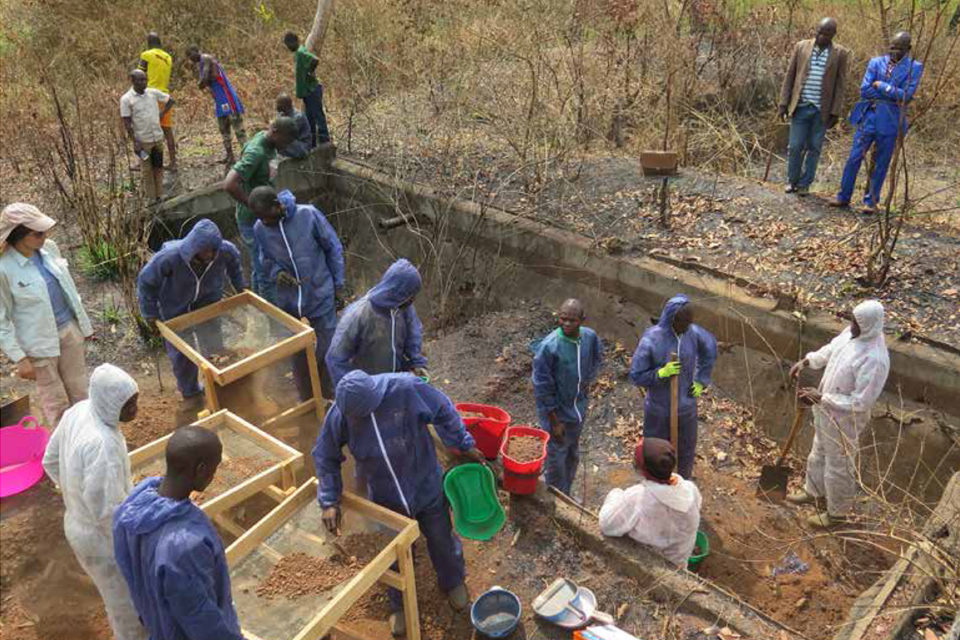
Aug 20, 2020 | News
Despite remarkable efforts to recover and identify human remains in Latin America, there are still thousands of cases where remains have not been identified and returned to their family. Crucially, families still struggle to understand and participate in the forensic process.
To address this issue, el Equipo Argentino de Antropología Forense (EAAF) launched today a Forensic Guide which aims at providing practical and accessible information on the investigation, recovery, and analysis of human remains.
Currently, this publication is only available in Spanish but an English version will be provided in the forthcoming months.
The guide will be particularly useful for people who have no previous forensic knowledge and will contribute towards improving the understanding and participation of victims and civil society organizations in the search for disappeared persons.
The Guide was written by Luis Fondebrider, the executive director of the EAAF and takes into account international standards including the revised Minnesota Protocol on the Investigation of Potentially Unlawful Death (2016).
The ICJ, the Equipo Peruano de Antropología Forense (EPAF) and the Fundación de Antropología Forense de Guatemala (FAFG) provided input during the Guide’s development.
The Guide was launched during a Webinar. The key speakers were Luis Fondebrider from the EAAF; Claudia Rivera from the FAFG and Franco Mora from the EPAF. It was moderated by Carolina Villadiego from the ICJ.
At the launch, all the forensic experts emphasized the central role that the families of disappeared persons must play in the process of investigation, recovery, and analysis of human remains. In particular, it was acknowledged that they not only have key information to find the remains but also, they have driven the processes.
Background
The Guide was produced as part of a regional project addressing justice for extrajudicial killings and enforced disappearances in Colombia, Guatemala, and Peru, which is coordinated by the ICJ.
The aim of the project is to promote the accountability of perpetrators and access to effective remedies and reparation for victims and their families in cases of extrajudicial killings and enforced disappearances in Colombia, Guatemala and Peru – and Latin America more broadly – through effective, accountable and inclusive laws, institutions and practices that also reduce the risk of future violations. The project is supported by the EU European Instrument for Democracy and Human Rights (EIDHR).
The ICJ’s partners include the Asociación de Familiares de Detenidos-Desaparecidos de Guatemala (FAMDEGUA), Asociación Red de Defensores y Defensoras de Derechos Humanos (dhColombia), Equipo Argentino de Antropología Forense (EAAF), Equipo Peruano de Antropología Forense (EPAF), Fundación de Antropología Forense de Guatemala (FAFG), and the Instituto de Defensa Legal (IDL).
Contacts:
Kingsley Abbott, Coordinator of the Global Accountability Initiative, e: kingsley.abbott(a)icj.org
Carolina Villadiego, Legal and Policy Adviser, Latin America, and Regional Coordinator of the Project, e: carolina.villadiego(a)icj.org









